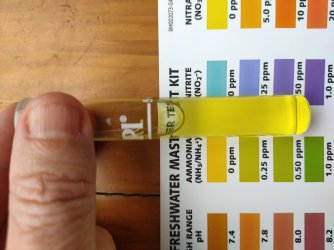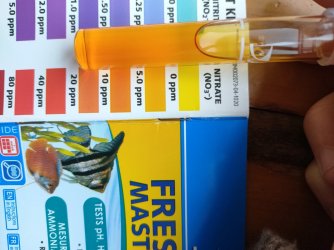I mentioned the cause, it is an imbalance. To sort this out we need to know the light data--intensity, spectrum (the Kelvin rating), how long the light is on each day, and is it consistent by using a timer or ad hoc. All of these lighting factors are important. As for the nutrients in balance, are you using any fertilizer? What is the GH of your water?
Do not use hydrogen peroxide. Hydrogen peroxide is a powerful oxidizer that has been used under field conditions to control I. multifiliis. High doses can cause gill damage leading to fish mortality (especially at high temperatures) (Schmidt et al. 2006; Noga, 2010). Some may argue that "high doses" would not apply, but that is no reason (and may not be true anyway) to risk fish when there are safer methods.



